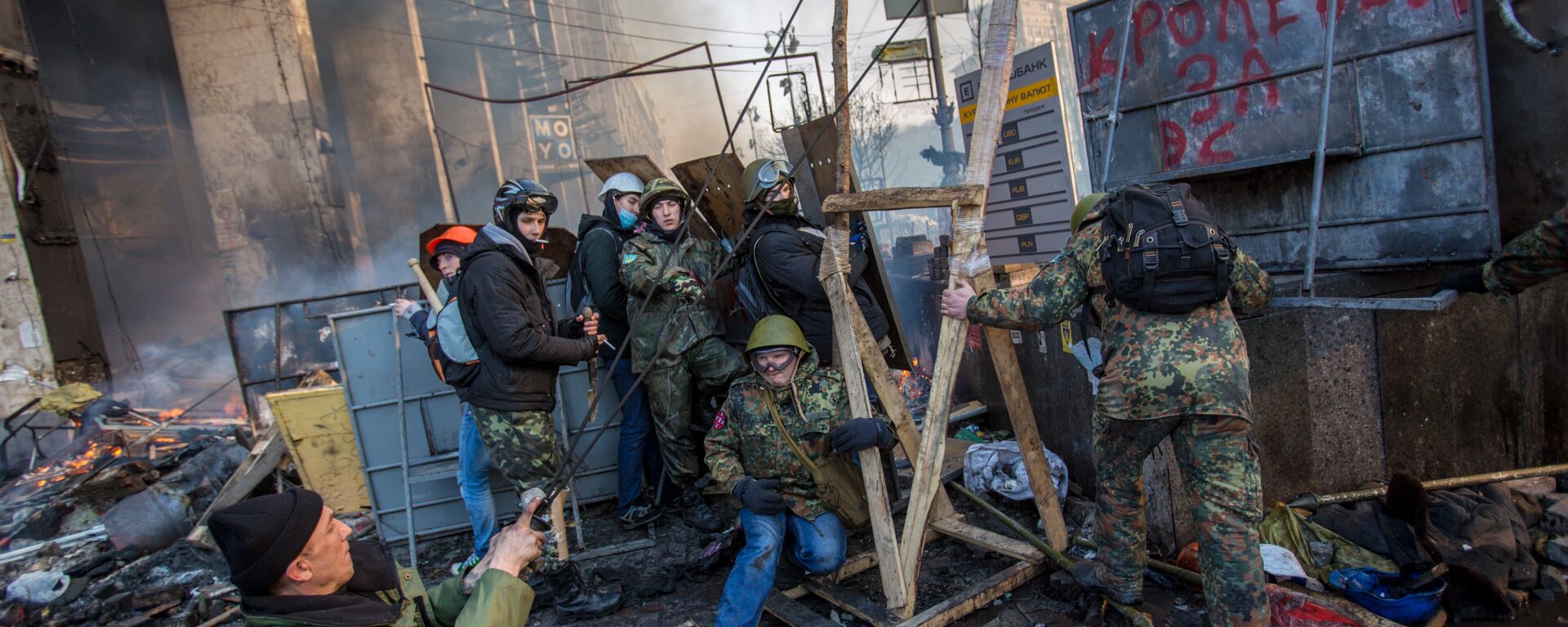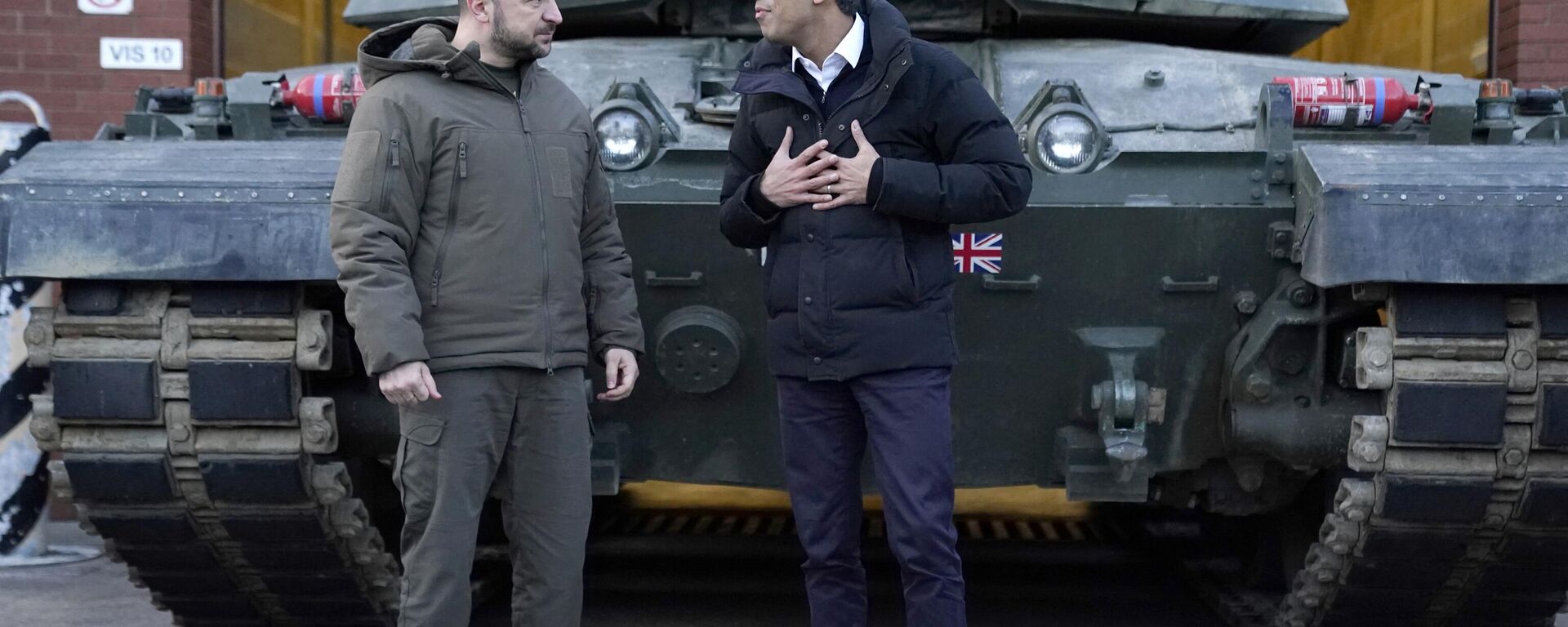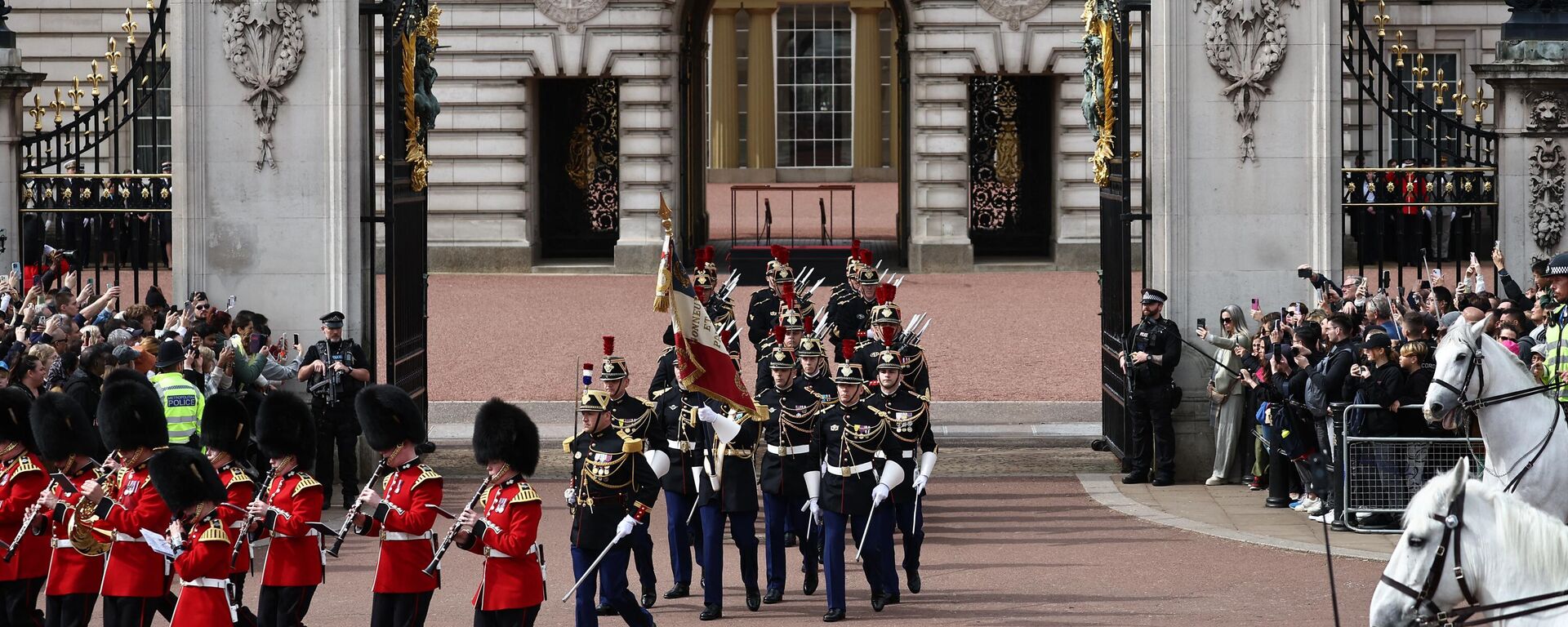https://sputnikglobe.com/20240804/british-troops-living-in-moldy-rat-plagued-homes-as-top-brass-sits-on-multi-million-pound-pensions-1119635298.html
British Troops Living in Moldy, Rat-Plagued Homes as Top Brass Sits on Multi-Million Pound Pensions
British Troops Living in Moldy, Rat-Plagued Homes as Top Brass Sits on Multi-Million Pound Pensions
Sputnik International
Last year, a senior US general privately told then-Defense Secretary Ben Wallace that the Pentagon no longer considers Britain’s elite, all-volunteer Army a “top-tier” fighting force, with Britain’s defense establishment privately grumbling that the military had been “hollowed out” by spending cuts and the transfer of equipment to Ukraine.
2024-08-04T14:34+0000
2024-08-04T14:34+0000
2024-08-04T14:34+0000
military
britain
keir starmer
ben wallace
rishi sunak
united kingdom (uk)
ukraine
nato
pentagon
https://cdn1.img.sputnikglobe.com/img/07e8/08/04/1119635140_0:125:1320:868_1920x0_80_0_0_e47bd2378b4d8f28fc716574f042cbd8.png
Britain’s Armed Forces are facing a new scandal this week amid revelations that top defense officials have seen their pensions hiked by as much as 50% and enjoyed nest eggs ballooning to over £11+ million pounds (about $14 million) as the military faces equipment shortfalls and a recruitment crisis, while military families are forced to live in deathtrap housing.The Daily Mail reported Saturday that Armed Forces chief Admiral Sir Tony Radakin alone is in line to receive a pension worth some £4.5 million ($5.76 million) “the biggest public sector pot ever,” in the newspaper’s estimation, including a £470,000 ($602,000) cash payout when the 57-year-old retires.Gwyn Jenkins, the Royal Marines general who now ex-Prime Minister Rishi Sunak tapped as the next National Security Advisor, and who has served under Radakin as Vice-Chief of the Defense Staff between August 2022 and June 2024, is set to receive close to £3 million ($3.84 million) in pension payouts, somehow boosting his pot by nearly £1 million ($1.28 million) over the last year alone.Ministry of Defense Permanent Secretary David Williams, the government’s principle civilian advisor on defense, has a pension coming to him of nearly £2 million ($2.56 million). His job, incidentally, includes a responsibility for finances and planning as the MOD’s departmental accounting officer, including “personal accountability to Parliament for the economic, efficient and effective use of defense resources.”Prime Minister Keir Starmer’s government announced a “root and branch” strategic review of defense policy last month to address the British response to what Defense Secretary John Healey called the “increasing instability and uncertainty” in the world. Starmer has promised that the review would create a “roadmap” for the UK to increase defense spending from about 2.3 to 2.5% of GDP. Healey, meanwhile, has promised to make Britain “the leading European nation” in NATO to counter Russia as the US shifts its focus to China.But while the UK spent £54.2 billion ($69.4 billion) on defense in the 2023/2024 fiscal year, and is expected to increase spending to £57.1 billion ($71.1 billion) in 2024/2025, the nation’s elite military has grumbled over spending priorities.Polling in June found that less than a third of Army and Navy personnel expressed satisfaction with the quality of their equipment. A parliamentary Public Accounts Committee investigation in March slammed the MoD after discovering there was no “credible” plan to fund the purchase of new military equipment.In February, the Defense Committee pointed to a series of “capability gaps and readiness shortfalls in each of the Front Line Commands,” and shortages of both equipment and logistics, from armored infantry and fighting vehicles, to Challenger tanks. Delays in production, funding and upgrades of equipment were mentioned as sore points. The committee’s report admitted that giving vast quantities of Britain’s defense stocks away to Ukraine without timely plans to replace them was part of the problem.Recent months have also seen a spate of reporting on the state of the housing the military offers its soldiers and their families, with story after story on military homes suffering mold, rat and pest infestations, gas and electrical issues published in major British outlets. According to one report, some 62% of the 47,863 service family properties on the books have been treated for electrical faults in the last two years alone.The demoralized state of the UK’s military has helped fuel a recruitment crisis. In June, reports based on government data revealed that 16,140 full-time military personnel had quit the Armed Forces over the past year, with only 10,680 enlisting to replace them. The same issue is reportedly plaguing the reserves, which 5,580 have quit, and where only 3,780 personnel were recruited to replace them.Britain has been at the forefront of NATO’s proxy war against Russia in Ukraine. Kiel Institute for the World Economy figures show that the UK’s military aid commitments to Kiev are the third-largest in the world after the US and Germany, with London estimated to have sent nearly $9.6 billion in aid since 2022. British assistance has included everything from Challenger 2 tanks, APCs, IFVs and MRAPs to towed, self-propelled and rocket artillery, drones and long range Brimstone and Storm Shadow missiles.Defense sources told media last year that Britain had slipped from its status as a “top-tier” military, in part thanks to budget shortfalls, and in part due to the gifting of equipment to Ukraine “with no plans to replace [it].” One source said the military in its current state can’t defend the skies over Britain, has enough ammunition to last only “a few days” of fighting, and can’t field a 25,000-30,000 troop strong division in fewer than five or ten years.
https://sputnikglobe.com/20240329/ukraine-stuck-with-stripped-down-monkey-model-challenger-2s-1117643196.html
https://sputnikglobe.com/20240225/at-long-last-uk-media-blasts-wests-support-to-euromaidan-coup--ukraine-conflict-1116974378.html
https://sputnikglobe.com/20240409/uk-and-france-talk-of-reviving-wwi-alliance-over-fear-of-trump-return-1117834301.html
britain
united kingdom (uk)
ukraine
Sputnik International
feedback@sputniknews.com
+74956456601
MIA „Rossiya Segodnya“
2024
News
en_EN
Sputnik International
feedback@sputniknews.com
+74956456601
MIA „Rossiya Segodnya“
Sputnik International
feedback@sputniknews.com
+74956456601
MIA „Rossiya Segodnya“
what is the state of the british military, is the british army strong, what does the british military spend its money on
what is the state of the british military, is the british army strong, what does the british military spend its money on
British Troops Living in Moldy, Rat-Plagued Homes as Top Brass Sits on Multi-Million Pound Pensions
Last year, a senior US general privately told then-Defense Secretary Ben Wallace that the Pentagon no longer considers Britain’s elite, all-volunteer Army a “top-tier” fighting force, with Britain’s defense establishment privately grumbling that the military had been “hollowed out” by spending shortfalls and the transfer of equipment to Ukraine.
Britain’s Armed Forces are facing a new scandal this week amid revelations that top defense officials have seen their pensions hiked by as much as 50% and enjoyed nest eggs ballooning to over £11+ million pounds (about $14 million) as the military faces equipment shortfalls and a recruitment crisis, while military families are forced to live in deathtrap housing.
The Daily Mail
reported Saturday that Armed Forces chief Admiral
Sir Tony Radakin alone is in line to receive a pension worth some £4.5 million ($5.76 million)
“the biggest public sector pot ever,” in the newspaper’s estimation, including a £470,000 ($602,000) cash payout when the 57-year-old retires.
Gwyn Jenkins, the Royal Marines general who now ex-Prime Minister Rishi Sunak tapped as the next National Security Advisor, and who has served under Radakin as Vice-Chief of the Defense Staff between August 2022 and June 2024, is set to receive close to £3 million ($3.84 million) in pension payouts, somehow boosting his pot by nearly £1 million ($1.28 million) over the last year alone.
Ministry of Defense Permanent Secretary David Williams, the government’s principle civilian advisor on defense, has a pension coming to him of nearly £2 million ($2.56 million).
His job, incidentally, includes a responsibility for finances and planning as the MOD’s departmental accounting officer, including “personal accountability to Parliament for the economic, efficient and effective use of defense resources.”Prime Minister Keir Starmer’s government announced a “root and branch” strategic review of defense policy last month to address the British response to what Defense Secretary John Healey called the “increasing instability and uncertainty” in the world. Starmer has promised that the review would create a “roadmap” for the UK to increase defense spending from about 2.3 to 2.5% of GDP. Healey, meanwhile, has promised to make Britain “the leading European nation” in NATO to counter Russia as the US shifts its focus to China.
But while the UK spent £54.2 billion ($69.4 billion) on defense in the 2023/2024 fiscal year, and is expected to increase spending to £57.1 billion ($71.1 billion) in 2024/2025, the nation’s elite military has grumbled over spending priorities.
Polling in June found that less than a third of Army and Navy personnel expressed satisfaction with the quality of their equipment. A parliamentary Public Accounts Committee investigation in March slammed the MoD after discovering there was
no “credible” plan to fund the purchase of new military equipment.

25 February 2024, 16:18 GMT
In February, the Defense Committee
pointed to a series of “capability gaps and readiness shortfalls in each of the Front Line Commands,” and shortages of both equipment and logistics, from armored infantry and fighting vehicles, to Challenger tanks. Delays in production, funding and upgrades of equipment were mentioned as sore points. The committee’s report admitted that giving vast quantities of Britain’s defense stocks away to Ukraine without timely plans to replace them was part of the problem.
Recent months have also seen a spate of reporting on the state of the housing the military offers its soldiers and their families, with
story after
story on military homes suffering mold, rat and pest infestations, gas and electrical issues published in major British outlets. According to one report, some
62% of the 47,863 service family properties on the books have been treated for electrical faults in the last two years alone.
The demoralized state of the UK’s military has helped fuel a recruitment crisis. In June, reports based on government data
revealed that 16,140 full-time military personnel had quit the Armed Forces over the past year, with only 10,680 enlisting to replace them. The same issue is reportedly
plaguing the reserves, which 5,580 have quit, and where only 3,780 personnel were recruited to replace them.
Britain has been at the forefront of NATO’s proxy war against Russia in Ukraine. Kiel Institute for the World Economy
figures show that the UK’s military aid commitments to Kiev are the third-largest in the world after the US and Germany, with London estimated to have sent nearly $9.6 billion in aid since 2022. British assistance has included everything from Challenger 2 tanks, APCs, IFVs and MRAPs to towed, self-propelled and rocket artillery, drones and long range Brimstone and Storm Shadow missiles.
Defense sources told media last year that Britain had slipped from its status as a “top-tier” military, in part thanks to budget shortfalls, and in part due to the gifting of equipment to Ukraine “with no plans to replace [it].” One source
said the military in its current state can’t defend the skies over Britain, has enough ammunition to last only “a few days” of fighting, and can’t field a 25,000-30,000 troop strong division in fewer than five or ten years.





